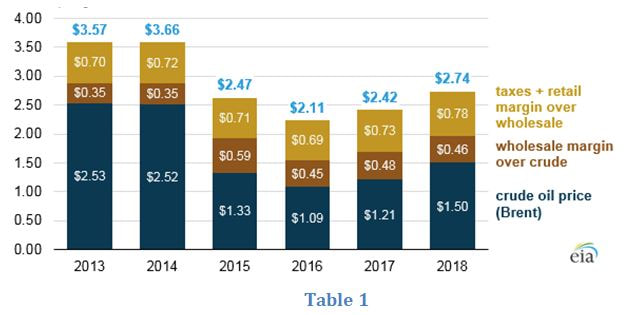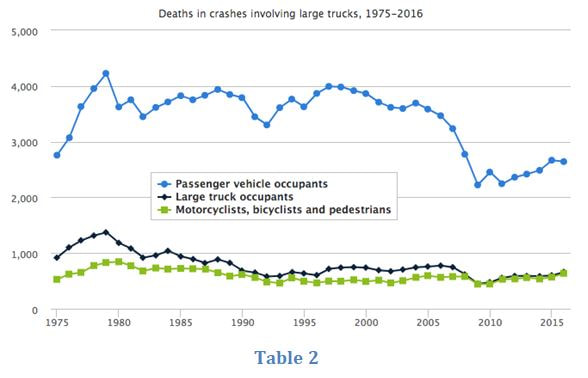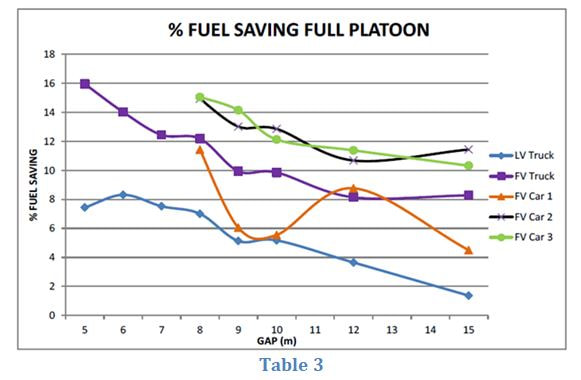|
Many of us accept what we own without questioning where it came from or how it got to us. Trucking is the mode of transportation that carries 70% of all freight transported in the United States, accounting for $671 billion of goods carried annually. The industry itself generates $225 billion in total revenue each year, making up 10.2% of GDP in the United States. Without trucking, American businesses, governments, and homes would come to a halt. The reliance on the trucking industry has only grown with decreasing product cycles and increasing consumer demands. While the industry is constantly adapting to be more efficient, it still is fueled by outdated technology reliant on fossil fuels. In turn, the increase in transportation has stimulated an increase in greenhouse gas emissions in the trucking industry. This paper will cover some current issues surrounding trucking and why they will stimulate change, what companies are doing to make trucking more sustainable, and the change consumers can spark in the industry. Trucking Industry IssuesOne of the major issues in the trucking industry is reliance on fossil fuels, which are harmful to the environment and to a company’s bottom line. On average, 88-92% of a trucking company’s revenue goes towards operating costs, the highest being labor closely followed by fuel. According to the American Transportation Research Institute, fuel accounts for 30-40% of a motor carrier’s Cost Per Mile (CPM) and is projected to increase with higher fuel prices this year. This coming summer (2018), gasoline prices are expected to be higher than they have been in four years (Table 1). This price change can be linked to global demand increases in growing countries, with China alone increasing its oil consumption by more than 350% since the 1980s. In addition to this, President Trump and the US Chamber of Commerce are working towards phasing a $0.25 tax increase on fuel over the next five years. While this will go towards improving transportation infrastructure, trucking operations will experience higher operating costs as a result. An increase in the price of deliveries is not a feasible option to outweigh fuel costs, because of the highly competitive nature of the transportation market. Instead, companies must turn towards decreasing consumption of fuel and increasing load and route capacity. This turns the solution towards procuring sustainable trucks and software that support low fuel consumption, and, in turn, decrease greenhouse gas emissions. SAFETY Outside of the monetary issues within the trade itself, the trucking industry has faced continued scrutiny over safety related issues involving passenger vehicles, commercial trucks, motorcycles, bicycles and pedestrians. In 2016, there were 3,986 fatalities from accidents involving commercial Class 8 trucks with 66% involving passenger vehicles and 17% involving other commercial trucks. While the industry has seen an overall decline in deaths since 1975 (Table 2) it still accounts for 11% of fatalities on roads, leaving room for vast improvement. Trucking Company ActionsWith companies realizing the positive impact sustainability has on both their bottom line and safety, many are taking action to further integrate it into their business model. Three methods they are using are route planning, fuel-efficient technology, and pre-ordering emissions-free vehicles. Route Planning Route planning technology is not like Google or Apple Maps, because it tailors the directions to large trucks, taking into account fuel costs, turns and terrain. These systems are improving every year, with the majority of motor carriers using them in their operating structure. With over 40 systems competing in the current market, companies can cater the software to their specific needs and services. Because of this, route planning has become the norm in the trucking transportation and delivery markets, realizing billions of gallons in fuel savings over the past ten years. This technology will only continue to adapt and improve with changes in infrastructure, Artificial Intelligence (AI) capabilities and fuel-efficient trucks. Fuel Efficiency The need for increased fuel efficiency in trucks can be seen in the 53.3 billion gallons of fuel was consumed for business purposes alone in 2015. Fuel economy standards call for semis to have 7.2MPG on flat roads, but, realistically, the average truck only receives 5.6MPG when taking into account speed fluctuations, terrain variability, road obstructions and other obstacles that decrease fuel economy. Many companies are already combatting this with ways to increase fuel efficiency through hybrid trucks and platooning. Fuel Efficient Vehicles:
Fossil Fuel and Emissions Elimination The next step in fuel economy improvements is eliminating the need for fossil fuel completely. Hydrogen fuel cell and battery powered trucks will soon takeover the short-haul industry and be integrated into longer hauls in the near future. Hydrogen fuel cell trucks create their own energy by pulling electrons from compressed hydrogen in a compact fuel cell stack. They are refueled by hydrogen refueling stations, which are not prevalent in the US right now. Because of this, there is a bottleneck in their inability to travel long distances. An example of this is Toyota’s hydrogen fuel cell truck, which began drayage testing in the Port of Las Angeles to make short hauls to local DCs and warehouses. Its success is evidence that this technology could transform last-mile deliveries to commercial and residential areas but lacks flexibility in the services it can provide. However, this innovation does have room to grow, with Nikola recently unveiling their Nikola One hybrid hydrogen fuel cell truck with a range of 500 – 1,200 miles. Companies won’t be able to benefit from its efficiency until it begins production in 2021 and develops proper hydrogen refueling stations. Until then, local deliveries by hydrogen powered trucks will become more efficient and prevalent with continuous R&D. In November 2017, CEO and Chairman of Tesla, Elon Musk, announced that the fully electric powered Tesla Semi would hit production lines in 2019. In its unveiling, Musk discussed its 500 mile range, platooning and self-driving capabilities, aerodynamic design, and low operating cost. Traveling alone, the Tesla Semi decreases operating costs by 14.37%. This savings in operating costs is considerably increased to 43.71% when the Semi engages in a platoon convoy. Motor carrier leaders like JB Hunt and Wal-Mart have already placed orders for Tesla Semi fleets, and the public can expect to see them piloted over the next year. While the integration of these vehicles creates questions about where the hydrogen and electricity are coming from and the sustainability of the production process, industry leaders paired with market entrants are setting the pace to revolutionize our energy source for delivering goods. COnsumer ImpactWhile it is easy to put the task of lowering commercial transportation impacts solely on companies, consumers must also evaluate what they are doing to drive the problem. At the heart of global demand increases that have stimulated increased transportation and emissions is consumer demand. 20th Century innovation and invention have enabled the population to have limitless access to real-time information, instituting the ease of making online purchases. E-commerce companies utilize free express shipping as a leverage point to capture consumer interest; however, when a consumer uses this express shipping option, it drastically lowers a company’s ability to fill a truckload. Lower truck capacity means more loads that go out, increased fuel consumption, higher company variable costs, and unnecessary packaging and emissions. On top of that, many companies are actually losing profit margin when providing that option for free. Waiting two or three extra days for a package to arrive allows the company to fill more loads and travel fewer miles. Choosing standard shipping, purchasing sustainably sourced products and educating others on where their products are coming from and how they got there are just a few things consumers can do to take action. The result of these actions will give consumers a different perspective on consumption and promote the companies and industries that are doing their best to be sustainable in production and transportation practices. Over the coming years, the trucking industry will experience exponential change, sparking an overall decrease in fuel consumption and emissions that have been negatively impacting the environment for too long. With variable operating costs absorbing 90% of revenues, companies are realizing the correlation between sustainability and safety, monetary and market benefits. Today, trucking market leaders are setting the pace for a more sustainable future, where the gap between modest change and emergent failures will steadily be closed. This will be accomplished through the technologies that enable fuel efficiency, increased safety and decreased labor demands that lower the cost to the economy, society, environment, and future generations. Written 5/2/18, Updated 6/26/18 Works Cited: Ashanti, Kiara. “The Truth About Why Gas Prices are Rising so High.” Money Crashers, 2012, https://www.moneycrashers.com/why-gas-prices-rising/ Cakebread, Caroline. “Tesla’s New Electric Semi Truck Could Work Wonders for Cutting Down Greenhouse Gas Emissions.” Business Insider, 17 Nov 2017, http://www.businessinsider.com/teslas-electric-semi-track-and-greenhouse-gas-emissions-chart-2017-11?r=UK&IR=T “Fatality Facts.” Insurance Institute for Highway Safety, 2016, http://www.iihs.org/iihs/topics/t/large-trucks/fatalityfacts/large-trucks Hill, Sean. “Summer Gasoline Prices Expected to be Highest in Four Years.” US Energy Information Administration, 2018, https://www.eia.gov/todayinenergy/detail.php?id=35752 Gardner, Lauren. “Trump Endorses 25-Cent Gas Tax Hike, Lawmakers Say.” Politico, 14 Feb 2018, https://www.politico.com/story/2018/02/14/trump-gas-tax-409647 Murdock, Andy. “The Environmental Cost of Free 2-Day Delivery.” Vox, 17 Nov 2017, https://www.vox.com/2017/11/17/16670080/environmental-cost-free-two-day-shipping “Nikola One Unveiling Lead Up.” YouTube, 30 Nov 2016, https://www.youtube.com/watch?v=3no3tF2kqEE “Report, Trends and Statistics.” American Trucking Association, 2017, http://www.trucking.org/News_and_Information_Reports_Industry_Data.aspx “Route Planning Software.” Software Advice, 2018, https://www.softwareadvice.com/fleet-management/route-planning-comparison/?more=true#more Skydel, Seth. “Route Planning for Fuel Efficiency.” Fleet Equipment Magazine, 28 May 2014, http://www.fleetequipmentmag.com/route-planning-fuel-efficiency/ “Transport & Logistics Industry Operating Margin Statistics.” CSI Market, https://csimarket.com/Industry/industry_Profitability_Ratios.php?ind=1101 “Volvo’s SuperTruck Concept Vehicle.” Volvo Trucks, 2018, https://www.volvotrucks.us/about-volvo/supertruck/ Lauren McGlon is a senior at Auburn University's Raymond J. Harbert College of Business studying Supply Chain Management with a minor in Sustainability Studies. Lauren has held multiple leadership positions within the College of Business, Alpha Kappa Psi, and Auburn's Supply Chain Management Association.
1 Comment
|
Multiple AuthorsMP, LLC credits blog post with the original author and links (if available). Categories
All
AuthorScott E McGlon is the President of McGlon Properties, LLC and the author of many blog posts on MP Blog. He has been a serial entrepreneur, entrepreneur-in-residence, investor, and president/CEO of many successful start-ups since 1998. “Success is walking from failure to failure with no loss of enthusiasm." - Winston Churchill "The few who actually
go out and take extraordinary initiatives are the envy of the majority who sit back and just observe." “The LORD makes firm the steps of the one who delights in Him; though he may stumble, he will not fall, for the LORD upholds him with His hand.” - Psalm 37:23-24
“Keep away from people who try to belittle your ambitions. Small people always do that, but the really great people make you feel that you, too, can become great.” "It is more important in what you become than what you achieve. What are you going to become in pursuit of what you want?" - John Marsh, Marsh Collective
“Work harder on yourself than you do on your job" - Jim Rohn
"The secret to success is very simple: EVERYDAY if you do quality work, take initiative, act on innovative thoughts, and are assertive in your actions all backed by faith, the dividends will consistently flow your way." - SEM
|
Real Estate Properties | Business Blog | Our Ethos | Press Releases | TENANTS ONLY | Contact Us
Terms & Conditions | Privacy Policy | Gameday Condos Auburn AL All rights reserved. Auburn Football Memorabilia
Corporate Offices: McGlon Properties, LLC - Auburn Alabama - [email protected]
Corporate Offices: McGlon Properties, LLC - Auburn Alabama - [email protected]




 RSS Feed
RSS Feed